Are you looking to keep your medical records up to date? It's crucial for both you and your healthcare provider to have accurate health information, ensuring the best care possible. With an easy letter template, you can efficiently request an update on your health history from your physician's office. Curious about how to start this process? Read on for a detailed guide!
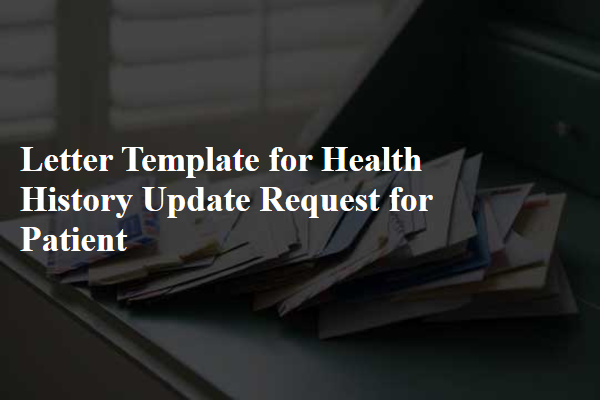
Clear patient identification information.
For patients seeking to update their health history, it is crucial to provide clear identification details to ensure accuracy and confidentiality. Essential information includes full name (first, middle, last), date of birth (for age verification), and patient ID number (specific to the healthcare facility). Additionally, providing contact information such as phone number and email address aids in streamlining the process. Mentioning the specific healthcare provider or department involved, along with the request date, adds context. Clearly stating the purpose of the update, whether it's for a regular check-up, a new treatment plan, or transfer to another facility, helps prioritize the request.
Purpose and necessity for health history update.
Updating a patient's health history is crucial for effective medical care. Accurate health histories, which include details about past illnesses, surgeries, allergies, and current medications, enable healthcare providers to tailor treatment plans. In the case of chronic conditions such as diabetes or hypertension, knowing a patient's evolving health status, medications, and changes in lifestyle habits can significantly influence treatment outcomes. Furthermore, recent studies (conducted by institutions like the American Medical Association) have demonstrated that patients with updated health histories experience fewer complications during treatment and better overall health management. Regular updates can lead to a more comprehensive understanding of a patient's health trajectory, ultimately enhancing communication between the patient and healthcare team.
Personal health information confidentiality assurance.
When requesting a health history update for a patient, it is essential to ensure the confidentiality of their personal health information (PHI). The Health Insurance Portability and Accountability Act (HIPAA) mandates strict guidelines for maintaining the privacy and security of PHI. This includes ensuring that all healthcare providers and staff handling such information are trained in confidentiality practices. Additionally, secure methods of communication, such as encrypted emails or secure patient portals, should be utilized to send and receive health history updates. Regular audits and staff education on confidentiality policies can further protect patient information and maintain trust in the healthcare system.
Instructions on how to provide the update.
A health history update request can enhance patient care and ensure accurate medical records. Patients should gather relevant documents reflecting the latest medical evaluations, diagnostic test results, or treatments received. Clear guidelines must be established for submitting the updates, such as preferred formats (digital or paper), secure email addresses, or specific office hours for hand delivery at the healthcare facility, for example, St. Mary's Medical Center located in Los Angeles, California. Emphasizing the importance of detail, including medication changes, allergy information, or recent surgeries, can optimize the quality of the provided information. Regular updates, ideally every six to twelve months, contribute to comprehensive care and informed decision-making by healthcare providers.
Contact details for further inquiries.
Health history update requests are essential for maintaining accurate and comprehensive patient records. Healthcare providers often need updated information to ensure effective treatment plans and personalized care. Common elements include contact details such as email addresses, phone numbers, and preferred methods of communication, which facilitate prompt inquiries and clarify any uncertainties. Patient identification information, including full names and date of birth, may also be necessary to access relevant records swiftly. Accurate reporting of health changes, recent medications, and ongoing treatments can significantly enhance patient-provider communication, fostering a more informed healthcare environment that prioritizes patient safety.
Letter Template For Health History Update Request For Patient Samples
Letter template of Health History Update Request for Patient Information
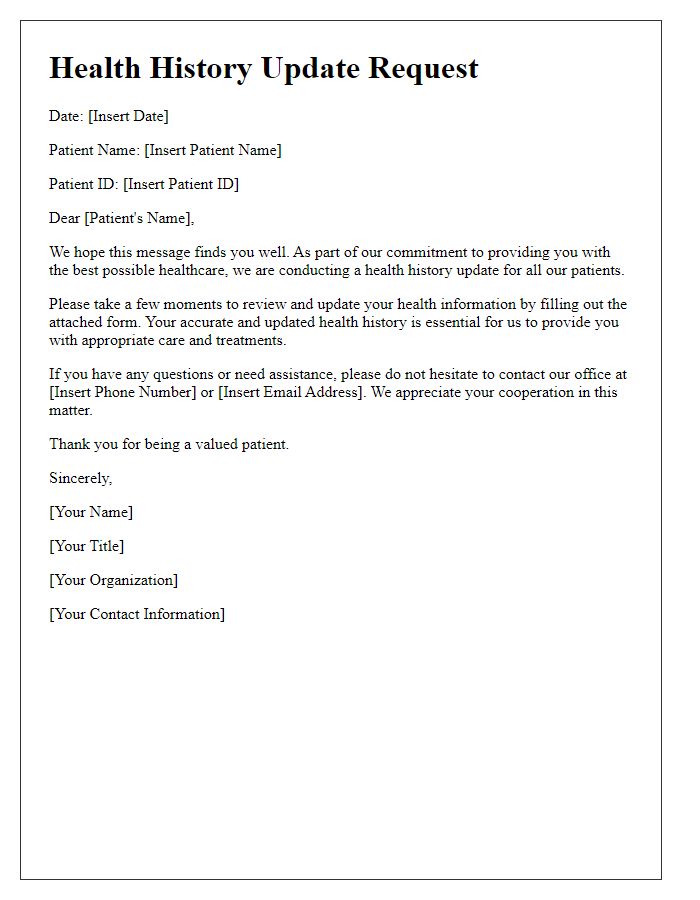

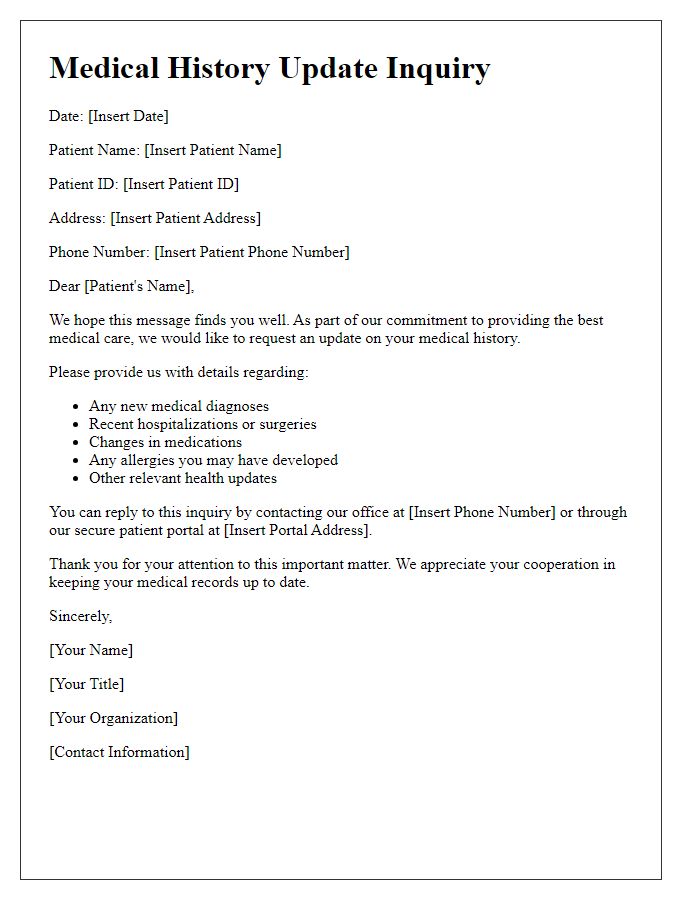
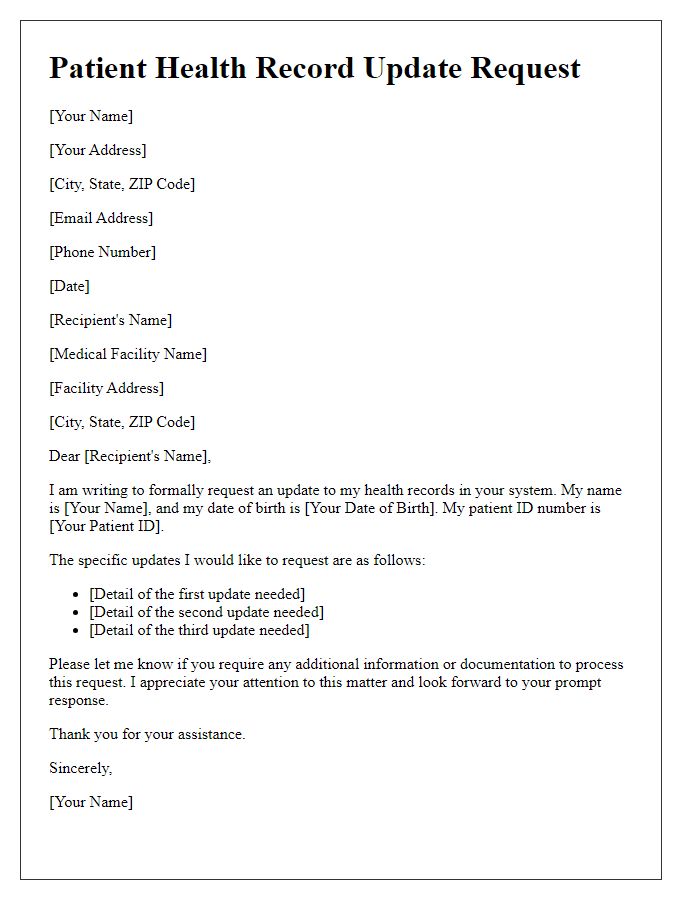
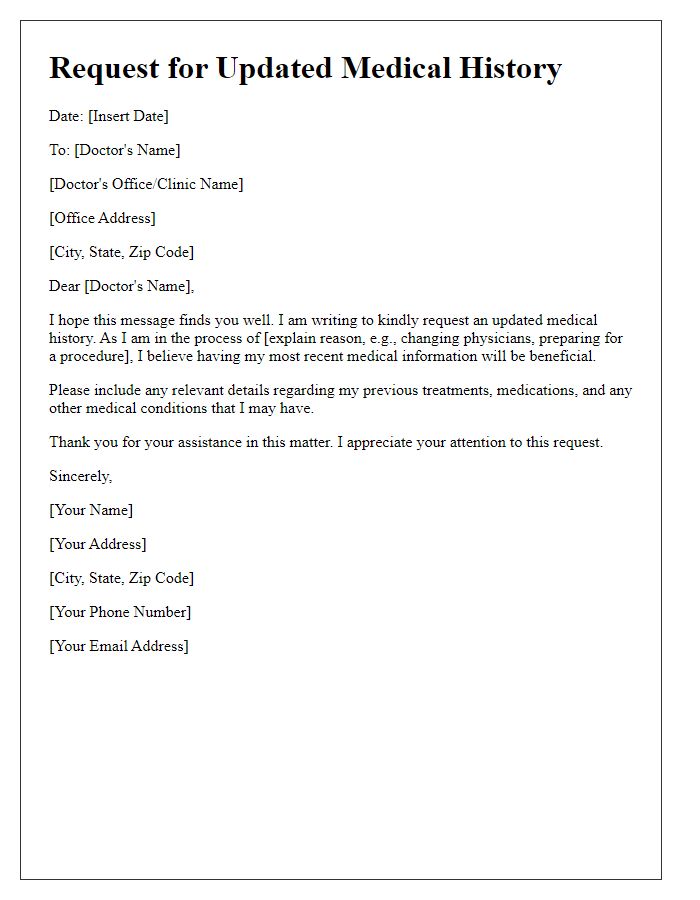
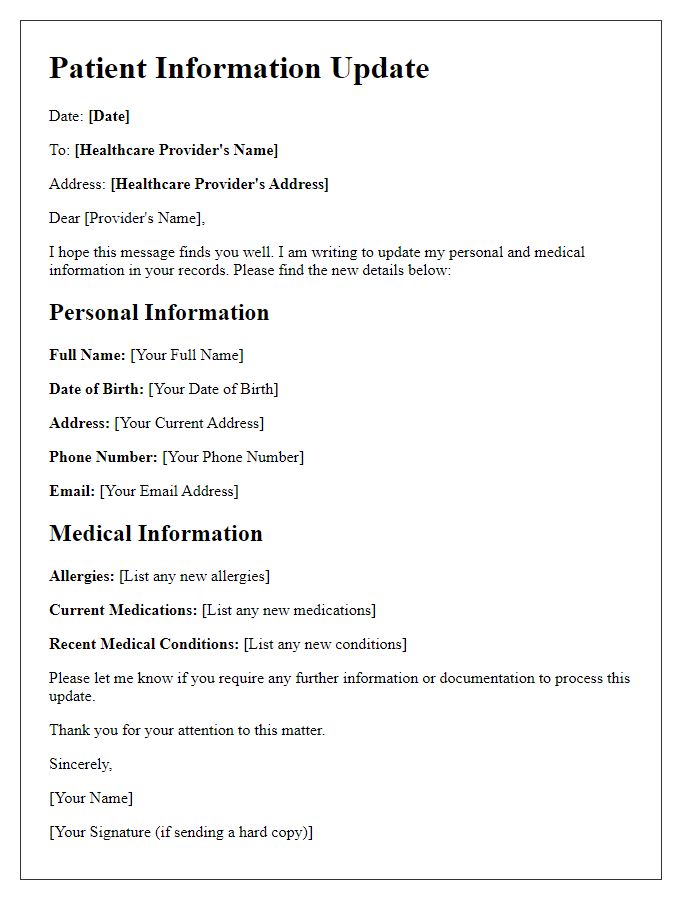
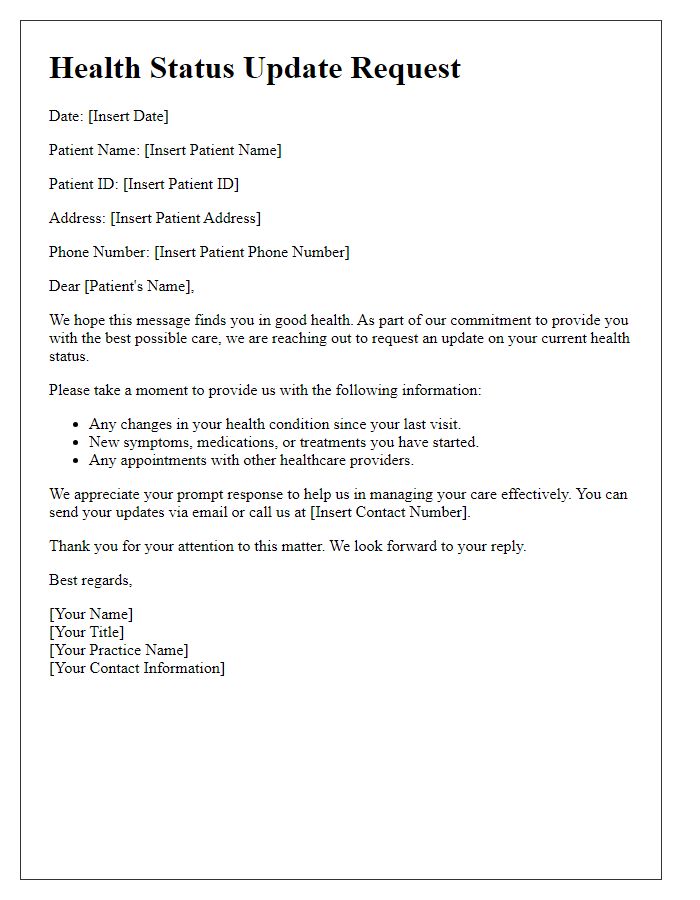
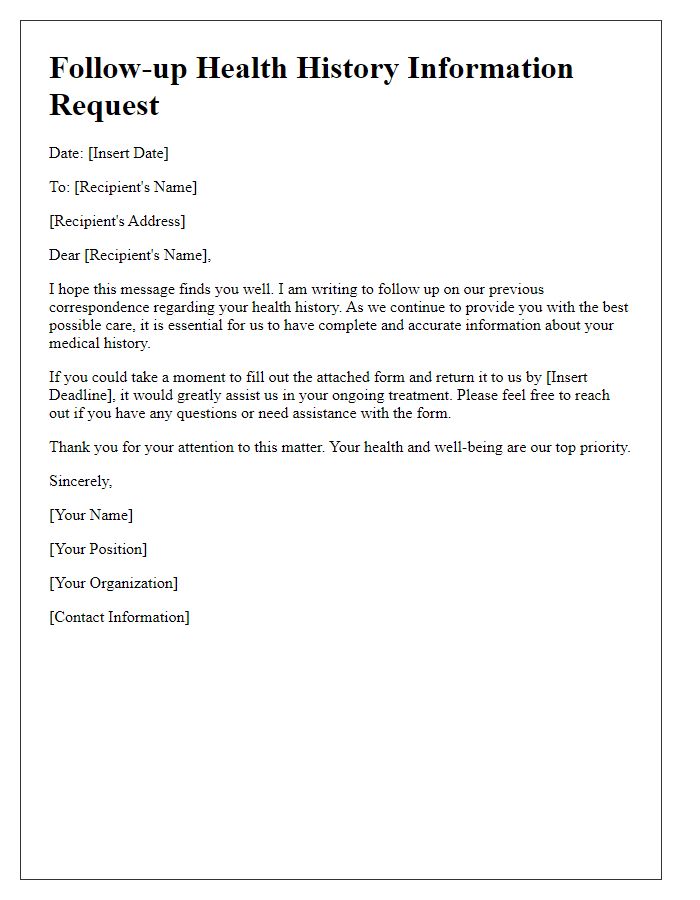
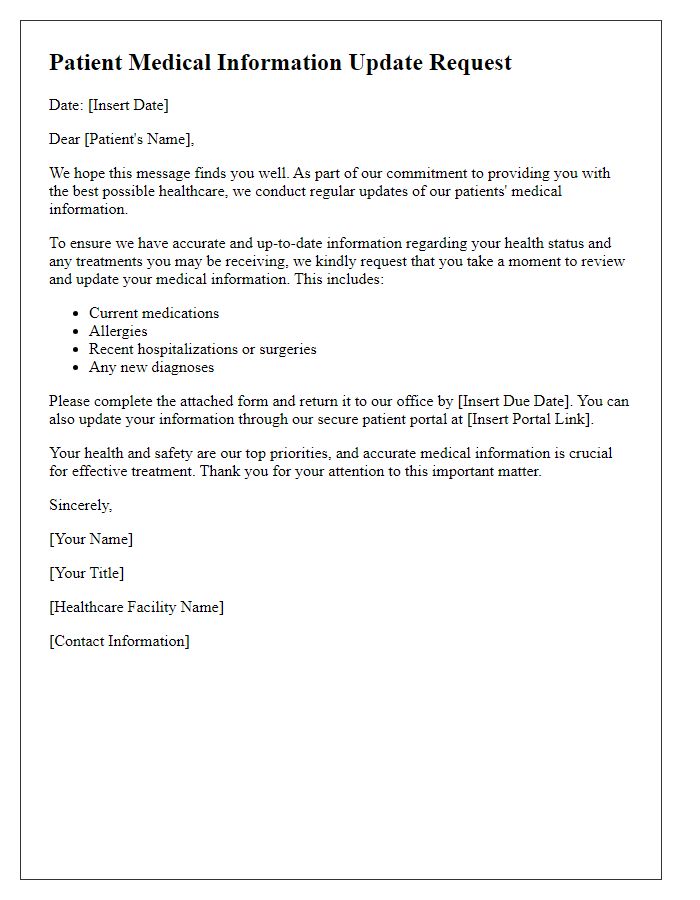
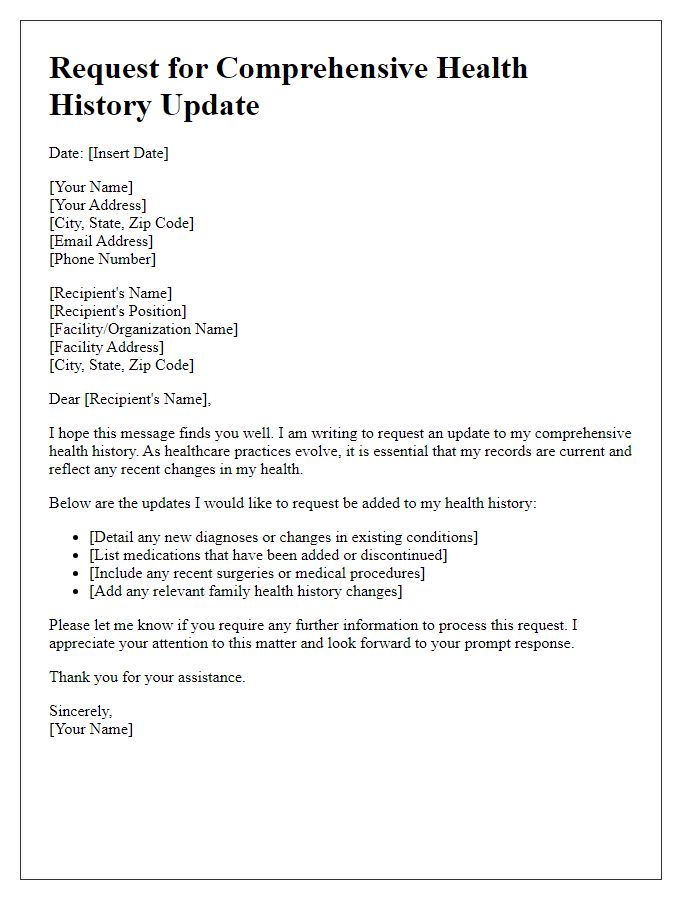
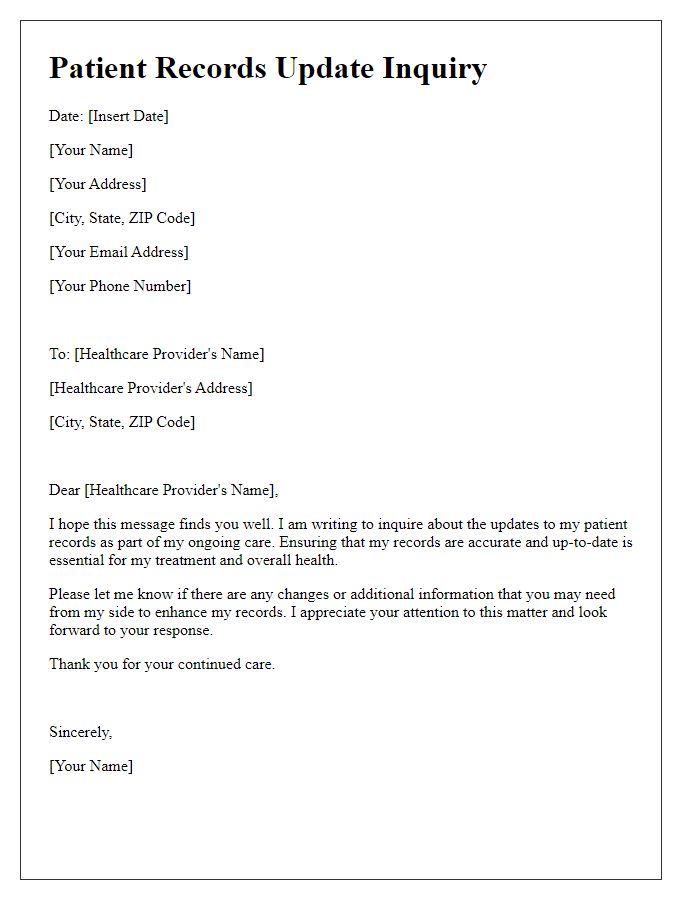


Comments